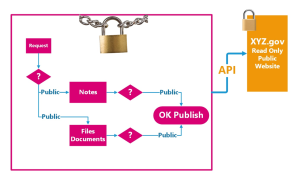If you are new to or outside the public sector, this brief introduction may be helpful.
The Act requires all government departments to be open with information they hold. Scotland has its own Freedom of Information (Scotland) Act 2002 (FOISA) which differs from the rest of the UK.
This right for citizens to ask for information held by their publicly funded bodies is common across most developed nations. In all cases, it is subject to several obvious exemptions such as providing information with national security risks and private information covered by the Data Protection Act (now GDPR). As an example, you can ask you local health authority how many nurses they employ and the total salary budget and they must answer in 20 working days. However, if you also asked for each nurse’s name, salary and telephone number, that information would clearly not be provided for privacy reasons. This means that the management of requests which can be of a high complexity is undertaken by a team including representatives of the departments that hold the information and a managerial, often legal sign off for responses. For example, a request to see a local disaster response plan is a reasonable request for a local authority. The school halls and other buildings listed for taking wounded might be published but not the home numbers and names of emergency call lists for medical staff. The latter information, hopefully in a separate appendix, would not be provided. Where such information is mixed in the text of any with the document provided as a response it needs to be blanked out or “redacted”. You can see from this example that there is requirement for senior officers with a great deal of experience and trust to undertake the information request management process.
Managing Information Requests
A request under Freedom of Information (FOI or FOIR) or an Environmental Information Request (EIR) must be answered in 20 working days. Thus, the IRMS (information request management system – sometimes shortened to “IRM”) must calculate and track deadlines excluding weekends and certain defined public holidays. The law surrounding these differs in each jurisdiction – not least because each country will have different bank holidays. So Australia Day and Independence Day are not holidays in the UK. In Scotland, clients of AXLR8 have different days in their bank holiday calendar to England and Wales, for example.
A Subject Access Request (SAR) should be answered with in a calendar month. This time does not include any time taken for the subject to prove their identity. SARs procedures need to comply with another act referred to by the acronym GDPR. The reason it is mentioned here is that most government bodies use the same “information governance” team as FOI requests as it requires similar experience, skills, care and trust.
Complaints, Reviews and Appeals will have their own deadlines.
More information is available elsewhere in this site and from the official links below.
Download the Freedom of Information Act. There is guidance on the site for the Office of the Information Commissioner (OIC) which covers all the jurisdictions in England, Wales and Northern Ireland.
For Scotland, you can obtain the act and guidance from the Office of the Scottish Information Commissioner (OSIC).
Public Disclosure Log and GDPR
The GDPR and FOI acts apply to the work done in information request management. This is discussed elsewhere but here is a summary
- FOI requires that information provided to an individual applicant (with a few exceptions) is published and searchable. This has the added advantage that you can find your answer amongst previous applications without bothering a resource-starved public authority and waiting up to 20 days for a response.
- GDPR demands that the data complies with a stated retention period. This matter is discussed here. GDPR obviously also applies to redacting personal data from responses and judgement whether an FOI request is so specific as to provide private data about an individual.
Since the original “Pathfinder” partnership development the system with West Sussex CC in 2000, the AXLR8 PDL and IRM system has been adopted by many public and private sector organisations in different national jurisdictions to manage requests.

Please call 01344 776500 or drop us a line if you would like to discuss your requirements or simply see a brief demo.
